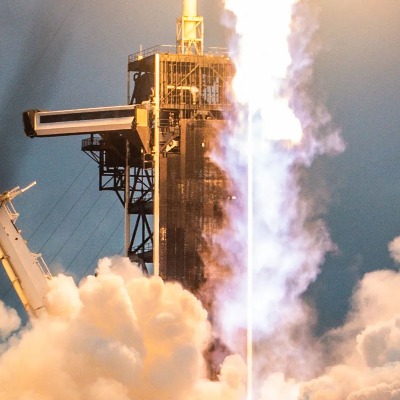China Launches 20 Satellites In A Day: Ambitious Dual Mission Marks Advancements In Space Tech

In a remarkable display of its expanding space capabilities, China launched a total of 20 satellites into orbit, utilizing both inland and sea-based launch platforms in a first for the nation. This ambitious dual mission underscores China's growing space prowess and its push towards becoming a major player in space exploration and commercial ventures.
Two Launches, One Goal:
The first leg of the mission saw a Long March 2C rocket take off from the Xichang Satellite Launch Center in southwestern China at 6:37 PM Eastern Time on February 2nd. It successfully delivered 11 satellites into orbit for Geely Automobile Holding Group, marking a landmark collaboration between the state-owned space agency and a private Chinese company. These satellites will provide Geely with valuable data for its fleet management and connected car initiatives.
Just hours later, at 10:06 PM ET on February 3rd, a Jielong-3 solid rocket launched from a mobile sea platform, marking the ninth successful launch from this innovative platform. This launch deployed nine diverse satellites, including several for scientific research and communication purposes.
Inland and Sea: Diversifying Launch Sites:
China's use of both inland and sea-based launch platforms reflects its strategic efforts to diversify its space launch capabilities. Inland launches like the Long March 2C offer established infrastructure and reliability, while sea launches provide greater flexibility and potential cost savings.
A Show of Strength, but Questions Remain:
This feat undoubtedly strengthens China's position in the global space race. However, some experts caution against interpreting it solely as a demonstration of power. They highlight the potential benefits of China's growing space program, such as fostering scientific research and technological advancements, as well as contributing to international space cooperation.
Concerns regarding transparency and the potential militarization of China's space program persist. Open communication and collaboration with the international community remain crucial to ensure the peaceful and sustainable use of space for all.
Looking Ahead:
China's ambitious dual launch serves as a testament to its rapid advancements in space technology. With continued investment and innovation, the nation is poised to play an increasingly significant role in shaping the future of space exploration and utilization. However, ensuring responsible and transparent practices alongside international collaboration will be key to navigating the complex path ahead.
This launch is not just a milestone for China, but a marker in the ongoing narrative of human exploration beyond our planet. As we venture further into the cosmos, fostering cooperation and ensuring responsible space exploration will be critical in unlocking the true potential of space for the benefit of all humanity.




